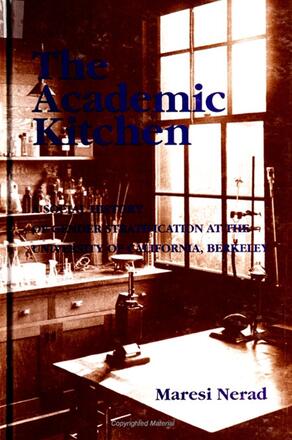
The Academic Kitchen
A Social History of Gender Stratification at the University of California, Berkeley
Alternative formats available from:
Presents a social history of gender stratification at the University of California at Berkeley through a combination of organizational theory and biography.
Description
The Academic Kitchen tells the story of the evolution of an all-women's department, the Department of Home Economics, at the University of California, Berkeley from 1905 to 1954. The book's unique focus on the connection between gender and departmental status challenges organizational theorists and higher education specialists to reconsider their traditional analysis of academic departments. By incorporating gender in the analysis, Nerad reveals the process by which departments traditionally dominated by women, including education, library science, nursing, social welfare, and home economics, begin as separate (and unequal) programs and are subsequently eliminated (or sustained without economic rewards, prestige, and power) when administrators no longer regard them as useful.
Maresi Nerad is Director of Graduate Research at the University of California, Berkeley. She has published several works, including Graduate Education in the United States (with R. June and D. Miller).
Reviews
"Maresi Nerad has taken one department in one university, but what a department and what a university. Required reading for anyone who wants to understand how the contemporary university got to be what it is." — Catharine R. Stimpson, New York University
"This book provides a new model for institutional history—it corrects or avoids all the predictable mistakes and misplaced emphases that have long plagued campus chronicles. For example, it elevates departments and subfields as crucial arenas where academic battles and issues were considered; it makes a reader consider famous presidents, trustees, and scholars in the ways they really worked." — John R. Thelin, University of Kentucky
"The Academic Kitchen can be read as a speculation about motives. What was the role of prejudice against women and women's interests by male faculty members and what was the role of the great drive for academic distinction among research universities of that time in history? The Academic Kitchen is both a well-prepared factual history and a 'Who done it and why?'" — Clark Kerr, University of California, Berkeley, President Emeritus
"This book is a pearl. Clearly written, meticulously researched, cogently argued, The Academic Kitchen shows what many organizational theorists miss—the tie between gender and that legal tender of the academic marketplace—prestige." — Arlie Russell Hochschild, author of The Time Bind